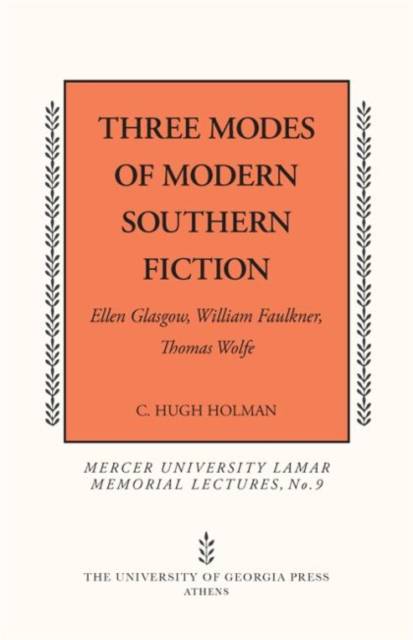
- Afhalen na 1 uur in een winkel met voorraad
- Gratis thuislevering in België vanaf € 30
- Ruim aanbod met 7 miljoen producten
- Afhalen na 1 uur in een winkel met voorraad
- Gratis thuislevering in België vanaf € 30
- Ruim aanbod met 7 miljoen producten
Zoeken
€ 39,95
+ 79 punten
Omschrijving
Within the general region designated as "The South," there are three societies only shadowily defined at their outer limits but distinct and sharp at their centers. In these essays C. Hugh Holman suggests ways in which race, geography, climate, and religion have contributed to the formation of these relatively definite sub-regions. He also shows that continuing literary traditions and social attitudes have shaped, qualified, and, to some extent, defined the artistic methods and forms which writers in these regions used. To demonstrate his thesis he has chosen Ellen Glasgow as spokesman for the Tidewater South, Thomas Wolfe for the Piedmont South, and William Faulkner for the Deep South. A thorough scholar-critic, Holman approaches his subject positively, presenting the impact of these sub-regions on three great Southern novelists and showing the distinctively different views of the South which each novelist embodies in his work. These essays will prove a useful tool to any student who wishes to understand the nature, quality, and meaning of the South, both as a literary subject and as a personal and often tragic experience.
Specificaties
Betrokkenen
- Auteur(s):
- Uitgeverij:
Inhoud
- Aantal bladzijden:
- 112
- Taal:
- Engels
- Reeks:
- Reeksnummer:
- nr. 9
Eigenschappen
- Productcode (EAN):
- 9780820333588
- Verschijningsdatum:
- 1/11/2008
- Uitvoering:
- Paperback
- Formaat:
- Trade paperback (VS)
- Afmetingen:
- 140 mm x 216 mm
- Gewicht:
- 149 g

Alleen bij Standaard Boekhandel
+ 79 punten op je klantenkaart van Standaard Boekhandel
Beoordelingen
We publiceren alleen reviews die voldoen aan de voorwaarden voor reviews. Bekijk onze voorwaarden voor reviews.











